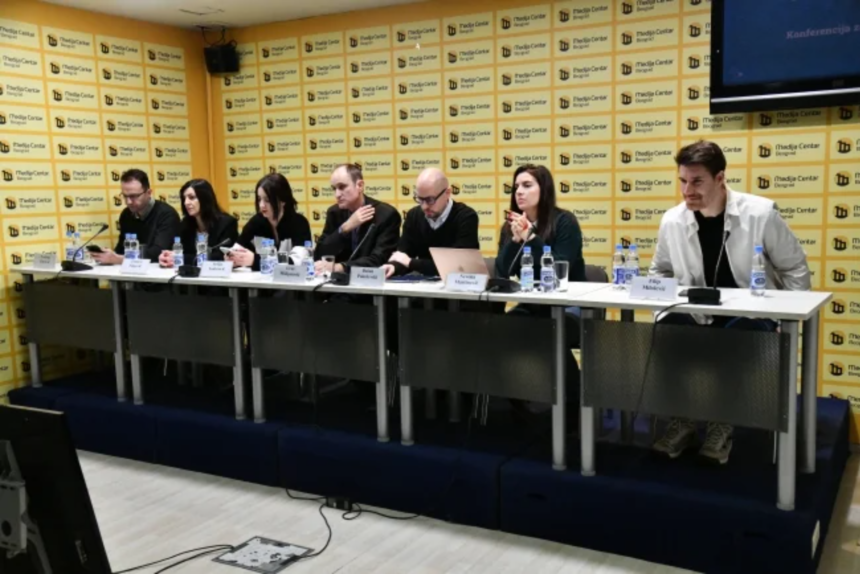Representatives from ten civil society organizations announced today that they have filed a criminal charge with the Prosecutor’s Office for High-Tech Crime against “unknown persons” in the Security Information Agency (BIA) and the Serbian Police. The charge alleges that the phones of activists and journalists were forcibly unlocked and infected with spyware, reports Beta.
A recent report by the international organization Amnesty International highlighted widespread use of spyware and forensic tools, presenting a severe attack on human rights, freedom of expression, privacy, and especially threatening the work of journalists and activists.
Nevena Martinović, a representative of the SHARE Foundation, shared that in police custody, activists’ mobile phones were seized if they refused to hand them over voluntarily. The phones were then taken to another room, where they were “infected” with spyware to collect data daily.
Analysis of the infected devices revealed that data was sent to a server with an IP address previously linked to BIA. All evidence from system logs coincided with the time the activists were held by the police and BIA.
Dušan Pokuševski, a representative of the Belgrade Centre for Human Rights, specified that the charge against BIA and the police is based on three criminal charges: unauthorized collection of personal data, creating and inserting computer viruses, and unauthorized access to protected computers, networks, and electronic data processing systems.
Pokuševski stressed that the criminal charge is a test of the authorities’ willingness to investigate the allegations and examine the specific cases, particularly considering the suspicion of ongoing and extensive spying on journalists and activists.
Despite the Ministry of Internal Affairs denying these allegations, which hinders dialogue, he emphasized that today’s action by the civil sector should be seen as a call for serious attention to the matter. He also mentioned that requests have been submitted to the Ombudsman and the Commissioner for Information of Public Importance and Personal Data Protection to initiate proceedings.
Furthermore, a letter has been sent to the Council of Europe Commissioner for Human Rights, and the information has been forwarded to the UN Human Rights Council for special procedures.
The briefing for journalists was organized by the Belgrade Centre for Human Rights, the Belgrade Centre for Security Policy, Civil Initiatives, CRTA, Youth Initiative for Human Rights, Independent Journalists’ Association of Serbia (NUNS), YUCOM, “Krokodil” Association, Partners Serbia, and the SHARE Foundation.







